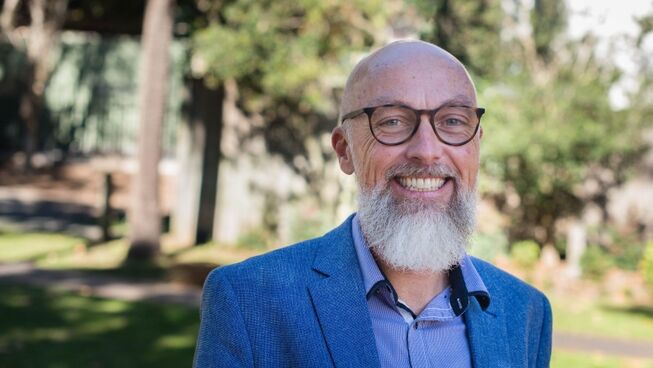Water Cooler Half Empty or Half Full?

The first thing you fear is that you’d probably have to drink that thing dry before you get to the bottom of the matter. It seems far too big and complex an issue to even deal with at work. Why bother with it at all?
In the past couple of weeks, many a Christian worker has been worried about being bailed up about Folau, and coming up with a less than satisfactory answer. And since there are such a range of opinions, from hostile on the left to hostile on the right, plus myriad views across the spectrum, where do you even begin? Where is safe? Where is unsafe?
It’s probably good to have a prepared set of tactics going in to this one, especially if you feel that this issue could come up at work. Being prepped, doing some mental homework beforehand, will help you answer more succinctly, and will take away the sense of fight or flight that you may be feeling!
There’s a lot to say about all of this, and as the millions of words written about it in the past few months show, it can’t be answered in the time it takes to drink a single glass of water. So, this could go on for a few blog posts! But here’s an introduction at least.
First, get some situational awareness. Is this a hostile question or an inquisitive one? Is the water cooler half empty or half full? Is your work colleague asking you this out of genuine curiosity or because they are angry about the idea that you might hold the same views as Israel Folau? Of course, there’s the possibility they hold the same view as you, and are seeking confirmation. But all of this needs to be sorted in your head in fairly quick time.
If you sense that its hostile, that’s where I would probably go with the Jesus approach. By that I mean that when he was asked by his enemies where he got his authority from, he refused to give an answer, but instead asked them a question which tested their motivations. You’re not beholden to give an answer. You’re not beholden to be rude about refusing, but you don’t have to put your cards on the table. The workplace is meant to be a safe space after all!
But if it’s inquisitive? First up see this as an opportunity not as a problem. You’re being given the chance to give a clearer understanding of the gospel message, a bigger picture of who Jesus is, and how he deals with people. Better still it gives you the chance to behave like Jesus in that you answer with grace and truth, rather than with self-righteousness (because you’re angry) or with falsehood (because you’re scared).
The second thing to be grateful for, despite the insistence of the hard secular voices, is the fact that people actually want religious voices in the public square, and are genuinely interested in what they have to say. “Keep your religion private” is a mantra that almost no one believes, or practices. And around that water cooler you are being given the opportunity to show how Jesus is Lord in every sphere of life. If people ask, they’re expecting a response, rather than a simple “I keep my religion private”.
The third thing to remember is to ask a question for every question you are asked. People do want to hear what you think, but they may also be asking for some space to tell you what they think, or at least to run some ideas past you. Part of what we need to do is create enough “white space” to let other people think through ideas and their implications.
The confidence to allow white space into a conversation is what sets the best psychologists apart from the also-rans. My wife reports that clients come out of her office saying things like, “That’s the first time someone has said something that makes sense,” when it’s they who have done most of the talking!
Now this is all just waggling on the tee (to move on from the water cooler image), we haven’t actually said anything yet. But I firmly believe that good preparation will lead to good execution.
So, in the lead up to the next post, perhaps think about what might some of the questions may be that you get asked? They can be grouped into a couple of categories. The first set of questions would be around the primary defeater belief identified by Mark McCrindle when it comes to Christian faith, and that’s the question about homosexuality. A defeater belief is an a priori assumption that if “A” is true, then “B” cannot be. So in this instance:
“Belief A states that expressing oneself sexually in a loving, consensual relationship regardless of gender is not only a good idea, but central to human flourishing. Belief B states that Christianity and the Bible assert that God’s design for human sexuality is marriage between one man and one woman. Both cannot be true at the same time. Since Belief A is the a priori belief, then Belief B is discounted from the outset.”
Also, with that in mind, are you being asked whether you, as a Christian, align with what Israel Folau wrote? Bear in mind this could be an intensely personal question for the colleague asking it.
The second set of questions would be around religious freedom, freedom of expression. Who or what decides what is permitted to be said in the public square. Some of this will be shaped by the Australian attitude to “live and let live”. If your water cooler colleague is not an Australian, and is from a religious background, this will be a cultural, as much as a theological, moment.
The third set of questions, and perhaps one that is most confronting in the workplace, is the validity or otherwise of businesses, companies and government departments to compel their employees to a social agenda or policy that they have not signed up to supporting publicly.
Whatever the question, these are big issues. It’s not something to dismiss lightly. It’s clear that the Folau case has touched a deep nerve in Australia and it will run for some time. Given that this is the case then you’ve got time to get a set of answers, or at least comments and observations, together. And of course, keeping Jesus central to the conversation is crucial, he is the water of life after all.


